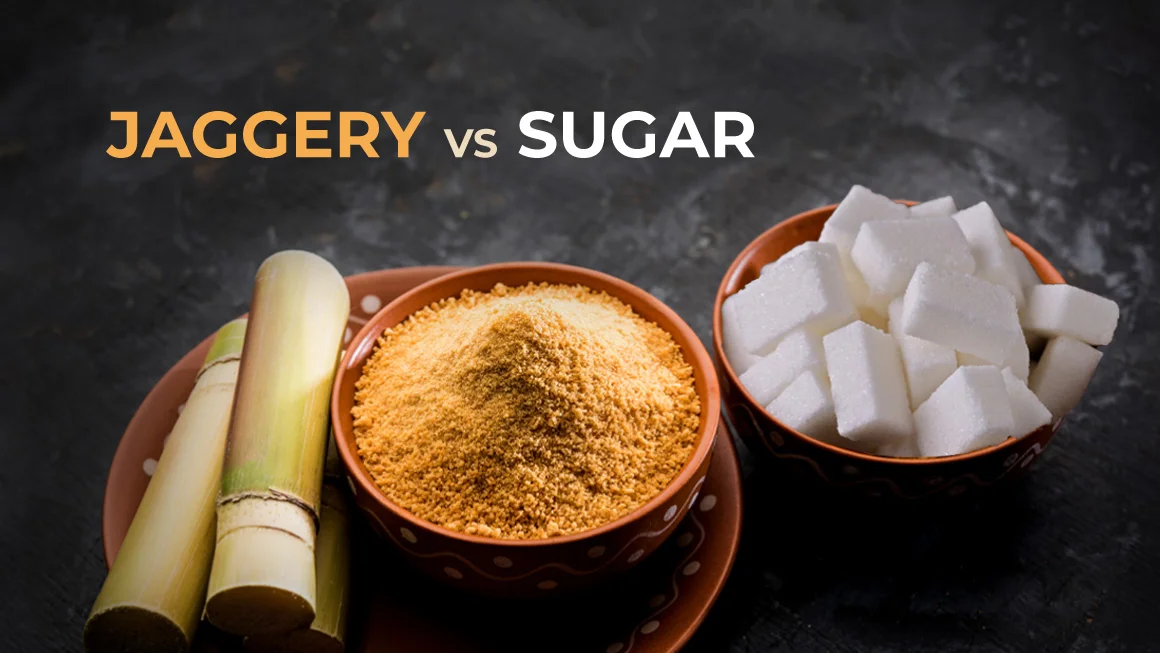Jaggery is Not Healthier Than Sugar, Explains Dr. Chandan Kamath

Many believe using jaggery in tea or coffee is healthier than using sugar, but the reality isn’t so straightforward. Both jaggery and sugar come from sugarcane, yet they differ in processing and nutrient content.
In recent years, households have increasingly shifted to jaggery instead of sugar, driven by concerns about sugar’s health impacts. However, both jaggery and sugar contain similar calories and affect blood sugar levels in almost the same way, notes Endocrinologist Dr. Chandan Kamath.
Speaking to Hubli EXPRESS, Dr. Chandan Kamath explains, “Sugar is highly refined, containing mostly sucrose and minimal nutrients. While jaggery undergoes less processing, it can’t be assumed to be entirely organic, as pesticides may be used in crop cultivation or even be present in the water used for irrigation. It’s tough to say we truly get ‘organic’ food these days.”
Dr. Kamath adds that jaggery does contain trace amounts of nutrients, but these are present in such small quantities that they don’t significantly impact health unless consumed in large amounts. “Both jaggery and sugar cause blood glucose spikes, which can be concerning for diabetic individuals or those managing blood sugar levels,” she explains.
While jaggery is often believed to aid digestion, detoxify the body, and boost immunity, these benefits lack robust scientific backing, especially when jaggery is consumed in small amounts, such as in tea or coffee.
“For overall health, reducing added sugars and sweeteners is more effective than simply switching between them,” Dr. Chandan Kamath advises. “If you prefer jaggery for its taste, it’s a fine alternative, but not substantially healthier than sugar. If you can’t have tea or coffee without a sweetener, use it sparingly—consider using only a quarter of a teaspoon and limiting it to once or twice a day.”
Dr. Kamath also suggests that switching to black coffee (without milk or sugar) can offer some health benefits, though it should also be consumed in moderation, as excessive intake can lead to other issues.
In addition, she recommends walking for at least 10 minutes after every meal to help prevent blood sugar spikes. “A short walk allows glucose to move to the muscles instead of remaining in the bloodstream,” she says.
During the Deepavali festival season, Dr. Kamath advises minimizing sweet intake. “If you have one piece of any sweet, balance it by avoiding other carbs like rice in that meal,” she suggests.
Dr. Chandan Kamath is a consultant endocrinologist at Adhrit Endocrine and Diabetes Centre, located at Eureka Junction, Hubballi. For consultations, you can contact: 9886320307.
Dr. G. B. Sattur Shares Guide for Diabetics on Managing Sweet Cravings This Diwali






